South Loop cafe proves resilient despite the pandemic
February 5, 2021
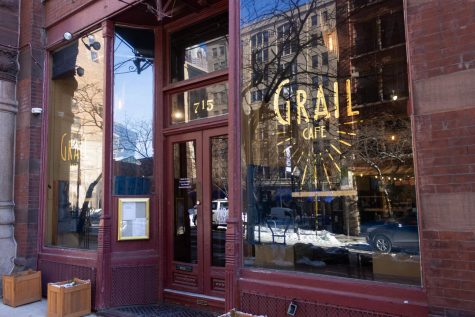
The heart of Printer’s Row is home to a quaint cafe where comfort and community are a top priority. Grail Cafe, a Black-owned business located in the South Loop, opened on Jan. 1, 2020, and quickly became a staple of the neighborhood.
But due to the pandemic, owner Sheldrick Holmes has faced repeated crushing blows that left him angry.
The first obstacle was the re-paving of Dearborn Street outside the cafe in late April, right after indoor dining was closed for the first time.
“The city’s telling us, ‘Hey, we really need to support small businesses’ … [but] I have these big huge things of gravel and dust, and wind, so who’s eating out there?” Holmes said.
But that was not the only problem. Grail Cafe also had issues with applications for multiple small business grants being rejected.
Holmes applied for the Business Interruption Grant on Nov. 3, which is funded by the Illinois Department of Commerce, and soon after he received an email explaining the funds had run out, and he would not be awarded the money.
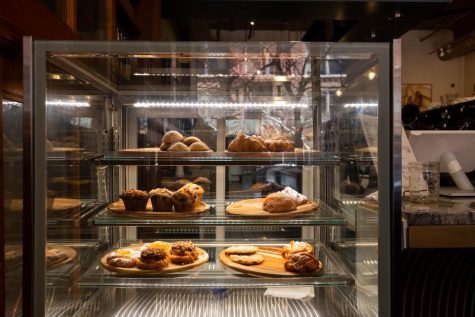
“I have worked too hard to keep this business,” Holmes said in a livestream video posted on Grail Cafe’s Instagram on Dec. 31. “And then to see that injustice of the Business Interruption Grant that was meant for people to keep open. I’ve kept my doors open; I’ve worked. And I’m still going to be open. [The South Loop community] should be mad right now.”
According to the Illinois Department of Commerce and Economic Opportunity’s website, only 6% of the Business Interruption Grant funds were given to Black-owned businesses, whereas 55% of the funds were given to white-owned businesses.
Alexandra Landers, a South Loop resident and customer who has been supporting Grail Cafe since the beginning of the pandemic, is among many others who are concerned about the livelihood of the cafe.
Landers works in the theatre arts and was confused as to why larger organizations such as the Goodman Theatre were receiving so much funding while other businesses were not.
“It’s frustrating that the city has advertised to these business owners that there are grant options—money options,” Landers said. “But then it seems that they don’t come to fruition.”
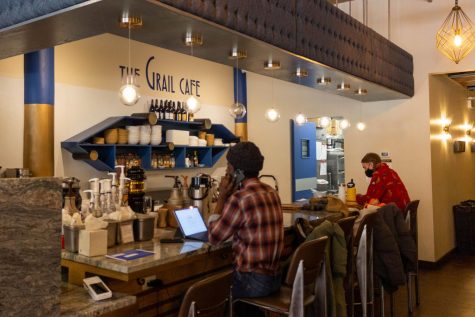
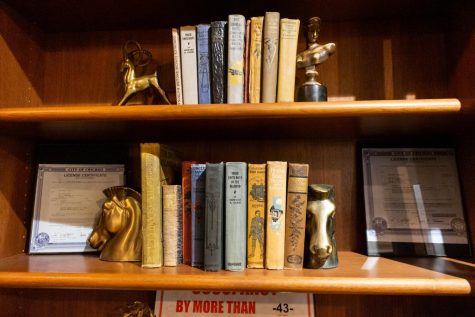
Trey Johnson, a barista at Grail Cafe who has been working for Holmes nearly every day since December 2019, has witnessed everything from countless phone calls with city officials to a decline in customers over the last year.
“I think that [Holmes has] been working super hard to get to the bottom of it all, because [he was denied] so many different times in different ways,” Johnson said. “At first it was like, ‘Oh, you didn’t get the grant.’ And then … he realized, ‘Oh, it was very much not for small businesses, not to Black-owned businesses.’”
But despite the struggles Grail Cafe has overcome since its opening, Holmes still holds a positive outlook on the future.
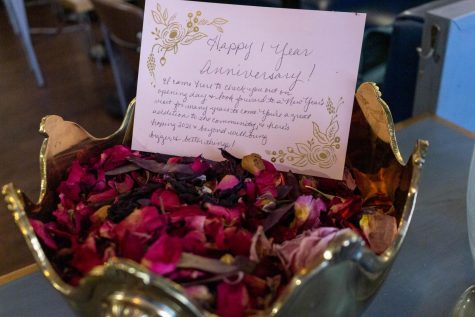
“This cafe’s a light place,” Holmes said. “It’s meant to be a space to attract people … who see the world at a different perspective.”
After indoor dining was shut down for a second time in October, Holmes was awarded the Chicago Hospitality Grant. He plans to use the money to help with rent and other necessities.
The Grail Cafe is now open to customers at 25% capacity, with reservations available for indoor booth seating.
“Our motto is, ‘where goodness can be found,’ and that goodness is the community within it,” Holmes said. “So when you don’t have them in a space … it’s very just not complete. Having the customers—the community—back into the space allows a living thing to be back home; it’s kind of a release.”







